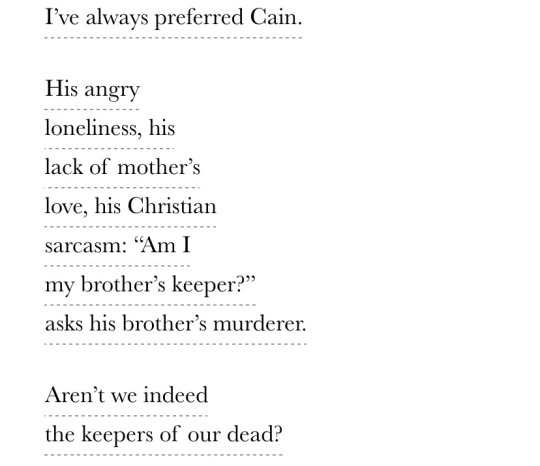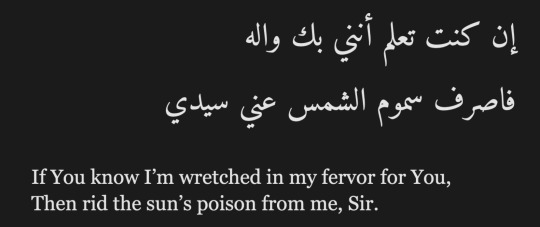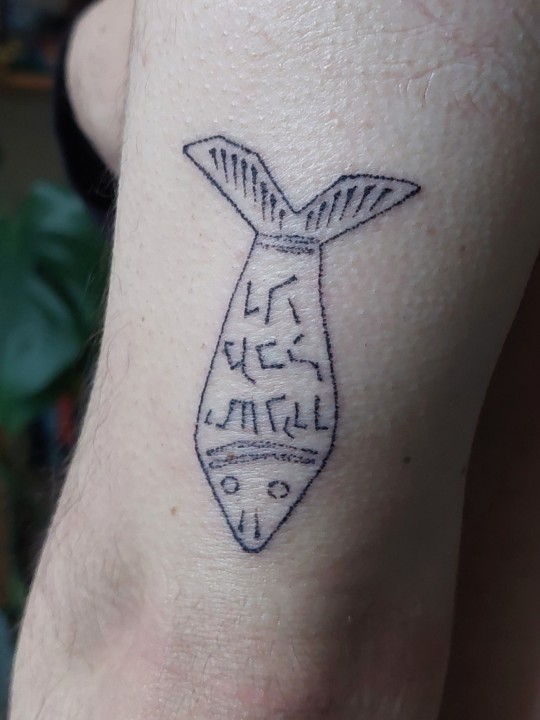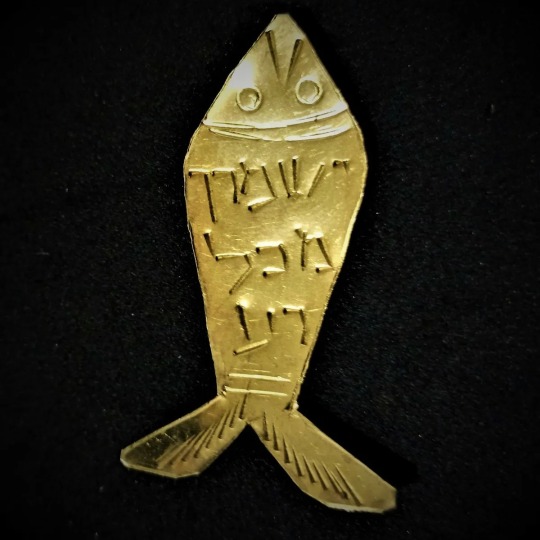muhibuallah
438 posts
𓆜 𓆝 𓆞 𓆟 A blog dedicated to (re)posting about religion and poetry
Last active 2 hours ago
Don't wanna be here? Send us removal request.
Text
The moon taught me there is beauty in darkness too, that even when I don't feel whole, I am enough.
2K notes
·
View notes
Text

Valzhyna Mort, from Music for the Dead and Resurrected: Poems; “Genesis”
Text ID: I’ve always preferred Cain. / His angry / loneliness, his / lack of mother’s / love, his Christian / sarcasm: “Am I / my brother’s keeper?” / asks his brother’s murderer. / Aren’t we indeed / the keepers of our dead?
16K notes
·
View notes
Photo

The crescent moon is seen near mosques in old Cairo on the Muslim holy month of Ramadan. (Asmaa Waguih)
91K notes
·
View notes
Text
the first person in the bible to give God a name is hagar (a slave woman) who called him "the one who sees me"
4K notes
·
View notes
Text

A complaint to G_d by Ḥayyūna, teacher of Rābi3a al3adawiyya, from 3uqalā2 almajānīn (The Rationally Insane) by alḤasan ibn Muḥammad anNīsābūrī. Translation by @apostlewithapomegranate.
19 notes
·
View notes
Note
Queer Shia Muslims are a rare thing to find on the internet or at least that has been my experience;-;
I know ;-;. But it's always nice meeting others so hello to you, friend!
5 notes
·
View notes
Text
“THE LOVE OF GOD’S CREATURES IS EVER THE SIGN AND THE PATH OF A LOVE THAT IS INFINITELY MORE TRUE, MORE LACERATING, MORE PURE THAN DIVINE LOVE.”
— On Nietzsche, Georges Bataille trans. Stuart Kendall
209 notes
·
View notes
Text
as far as i'm concerned all "yuri" is "toxic yuri" because women are ontologically evil thanks to eve's original sin
38K notes
·
View notes
Text


Little amulet fish friend tat by @mollacule or mo.stabs on IG tyyy
From the Tanakh, Tehillim Psalms 121-7:
שִׁ֗יר לַֽמַּ֫עֲל֥וֹת אֶשָּׂ֣א עֵ֭ינַי אֶל־הֶהָרִ֑ים מֵ֝אַ֗יִן יָבֹ֥א עֶזְרִֽי׃
1- A song for ascents.
I turn my eyes to the mountains;
from where will my help come?
עֶ֭זְרִי מֵעִ֣ם יְהֹוָ֑ה עֹ֝שֵׂ֗ה שָׁמַ֥יִם וָאָֽרֶץ׃
2- My help comes from the LORD, maker of heaven and earth.
אַל־יִתֵּ֣ן לַמּ֣וֹט רַגְלֶ֑ךָ אַל־יָ֝נ֗וּם שֹׁמְרֶֽךָ׃
3- He will not let your foot give way; your guardian will not slumber;
הִנֵּ֣ה לֹֽא־יָ֭נוּם וְלֹ֣א יִישָׁ֑ן שׁ֝וֹמֵ֗ר יִשְׂרָאֵֽל׃
4- See, the guardian of Israel
neither slumbers nor sleeps!
יְהֹוָ֥ה שֹׁמְרֶ֑ךָ יְהֹוָ֥ה צִ֝לְּךָ֗ עַל־יַ֥ד יְמִינֶֽךָ׃
5- The LORD is your guardian, the LORD is your protection at your right hand.
יוֹמָ֗ם הַשֶּׁ֥מֶשׁ לֹֽא־יַכֶּ֗כָּה וְיָרֵ֥חַ בַּלָּֽיְלָה׃
6- By day the sun will not strike you,
nor the moon by night.
יְֽהֹוָ֗ה יִשְׁמׇרְךָ֥ מִכׇּל־רָ֑ע יִ֝שְׁמֹ֗ר אֶת־נַפְשֶֽׁךָ׃
7- The LORD will guard you from all harm; He will guard your life.
יְֽהֹוָ֗ה יִשְׁמׇר־צֵאתְךָ֥ וּבוֹאֶ֑ךָ מֵ֝עַתָּ֗ה וְעַד־עוֹלָֽם׃ {פ}
8- The LORD will guard your going and coming, now and forever.
377 notes
·
View notes
Text



Pomegranate gardens/ Taft village/ Yazd/ Iran
Photography: Peyman norouzi
341 notes
·
View notes
Text

Verily, Allah is beautiful and He loves beauty.
2K notes
·
View notes
Text
“I felt pantheistic then— your heart beat in my ribs and mine in yours, and both in God’s.”
— Herman Melville, from a letter to Nathaniel Hawthorne,1851 (via bluebeardsbride)
3K notes
·
View notes
Text
Yet part of the rhythm of creation, according to the message of the Qur’an, is that humanity is bound to forget. In the presence of an Abraham, a Jesus, a Moses, or a Muhammad, all is real, all is luminous. If a prophet tells us that bones will be resurrected and those long dead will be gathered again in a place with soothing shade and flowing rivers, we believe everything this prophet says. In time, however, we forget. The task of prophecy is to remind us of that which we have known, and still know somewhere deep inside. There is no new lesson to learn; our task is only to remember, to recall what we already know, to remember who we are.
— Memories of Muhammad, Omid Safi
58 notes
·
View notes
Text
Who is Hazrat Ali ع;
The quencher of Kawthar, no one but Ali ع !
The conquerer of Khayber, no one but Ali ع !
The lion of God, no one but Ali ع !
The hope of Orphans, no one but Ali ع !
The confidant of Allah's secrets, no one but Ali ع !
The gateway to the knowledge of Muhammad ص is, no one but Ali ع !
77 notes
·
View notes
Photo


Ahmed Mater, Magnetism, 2012
These two photographs by Saudi Arabian artist Ahmed Mater were recently shown in the V&A’s free temporary exhibition ‘Light from the Middle East: New Photography’. Concerning this piece, the museum said:
In the series ‘Magnetism’, what at first appear to be pilgrims circling the Ka’ba, the sacred building at the heart of the sanctuary at Mecca, are in fact iron filings spiralling around a cube-shaped magnet. Mater refers to the spiritual force that Muslim believers feel during Hajj, the pilgrimage to Mecca. By creating photographs that recall well-known images on a dramatically different scale, Mater also questions the reliability of photography.
921 notes
·
View notes

